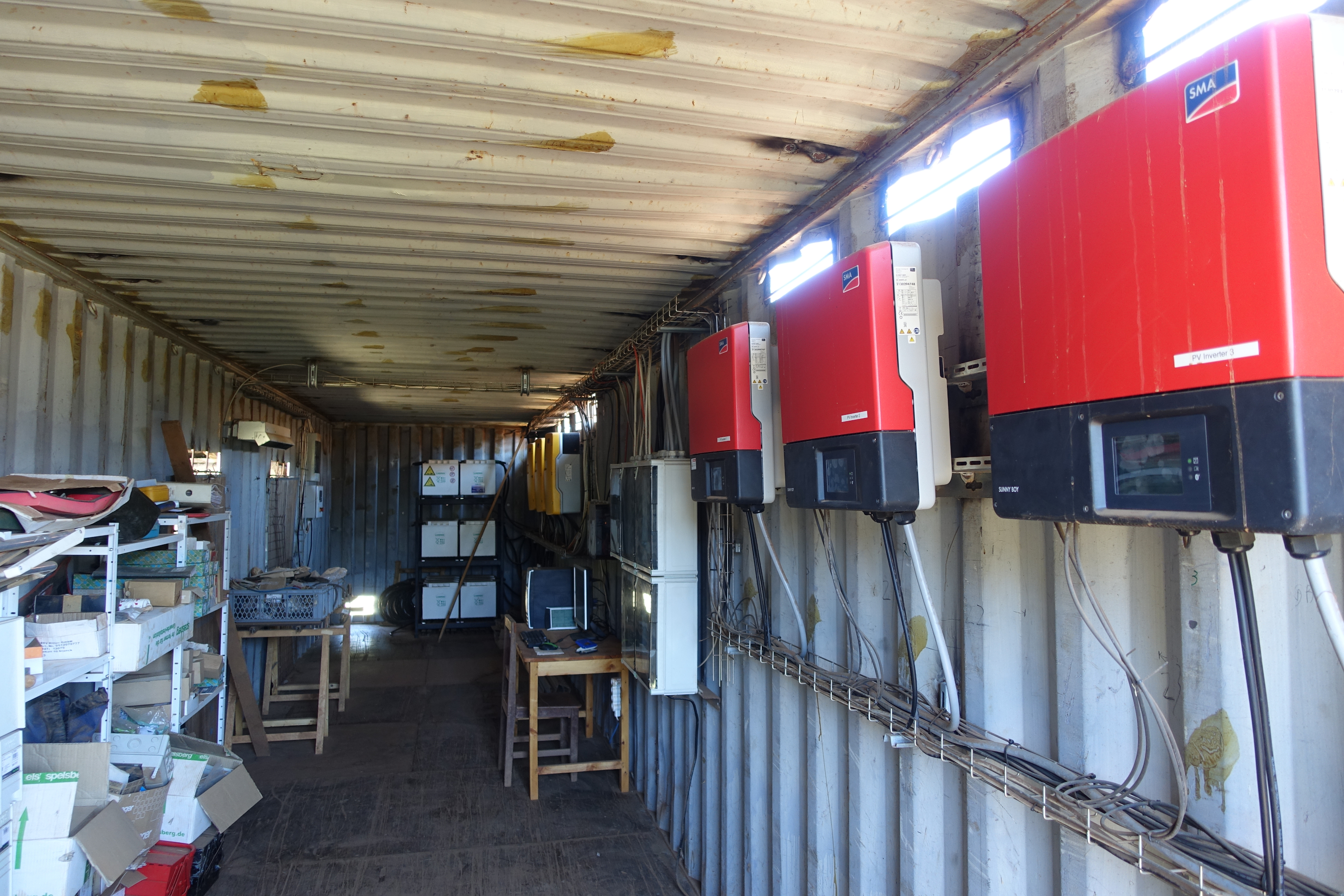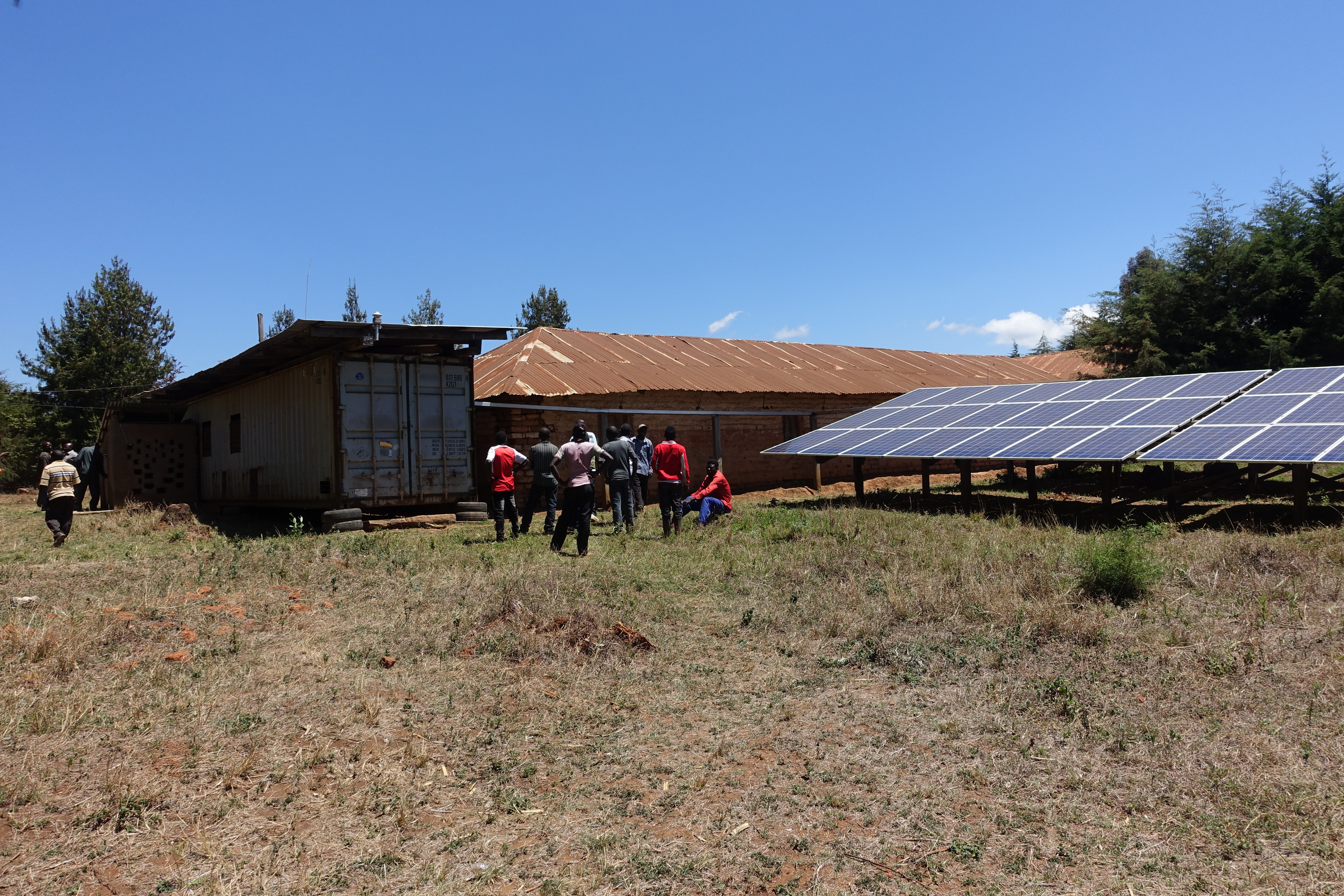

Affordable and clean energy
Quality education
Decent work and economic growth
Sustainable cities and communities
Partnerships for the goals
Coordinator: Ecolog Institut für sozial-ökologische Forschung und Bildung GmbH
Contact person: Tobias Klaus
Address: Wichernstr. 34, 21335 Lüneburg
Phone: +49 176 610 171 50
Email: tobias.klaus(at)ecolog-institut.de
Project partners in Germany
- Universität Paderborn
- Asantys Systems GmbH
- Photovoltaik-Institut Berlin AG
Project partners in Africa
- Makerere University Kampala
- NM-AIST Arusha
- Moto Zanzibar
- EACREEE
- GIZ Uganda
Africa Research and Teaching platform for Development - Sustainable Modular Grids for Grid Stability
Nine out of ten people worldwide have access to electricity. But in the age of digitalisation and artificial intelligence, 789 million people still live without electricity, according to the latest figures provided by the United Nations. Nearly 70 percent of these people live in Sub-Saharan Africa. A lack or unreliable supply of electricity remains a major obstacle to improving the quality of life in remote areas of Africa. The international and interdisciplinary A:RT-D Grids project team addresses this problem and develops strategies for sustainable rural electrification.
Problem-oriented approach
The aim of the project is to develop new ways of electrifying remote regions in East Africa through modular electric microgrids and their interconnection, in cooperation with African and German partners. This approach addresses two major aspects: the need of rural communities for a robust and primarily reliable power supply and the politically motivated need for a power supply that can be managed centrally as part of a national power grid. For this purpose, the project team considers, analyses and advances existing engineering solutions in the respective local contexts.
Many years of experience have shown that an interdisciplinary approach makes sense for such a project, as the sustainable operation of technical infrastructure systems depends not only on sound technology but on social and economic issues as well.

Interdisciplinary approach
In contrast to the usual approach, the A:RT-D Grids project takes a holistic view of the technical and social infrastructure systems. Social and technical infrastructures influence each other in the long term and can thus either provide stability or have a destructive effect. Building on the work of academics such as Nobel Laureate in Economics (2009) Elinor Ostrom, her colleague John M. Anderies from Arizona State University and others, the project team analyses mutual influences and proposes sustainability strategies for rural electrification. Particular attention is paid to gender sensitivity and migration. Institutes with expertise in electrical engineering, sensor technology, educational sciences and economics as well as companies from East Africa and Germany are involved.
Interdisciplinary graduate training courses will be offered throughout the duration of the project to teach the basics and to communicate current research results. Furthermore, the educational concepts which will be developed and evaluated are open to partners and interested stakeholders as well as to users of their networks.
This project addresses one of the most pressing obstacles to African development in a profoundly interdisciplinary and innovative way: young researchers with high potential from both continents, Europe and Africa, are cooperating with experienced peer researchers as well as entrepreneurs to find innovative solutions for the African energy dilemma, integrating teaching, learning, research and entrepreneurship in each of their respective disciplines.

Relevance to Practice
The proposed project thus contributes to addressing a number of global challenges by:
- providing a solution to the notoriously poor grid stability in rural Africa, as well as taking steps to address the need for energy access for all;
- creating high quality, sustainable, scientific cooperation structures;
- strengthening regional and transcontinental cooperation;
- training a well-educated workforce capable of providing energy solutions, which are among the most urgent basic requirements for African development;
- developing new adapted services that accompany the technology to ensure the long-term and sustainable use of these new technologies;
- strengthening the potential for innovation and opening up markets.
Invitation: Graduate Training 2023 in Tanzania

